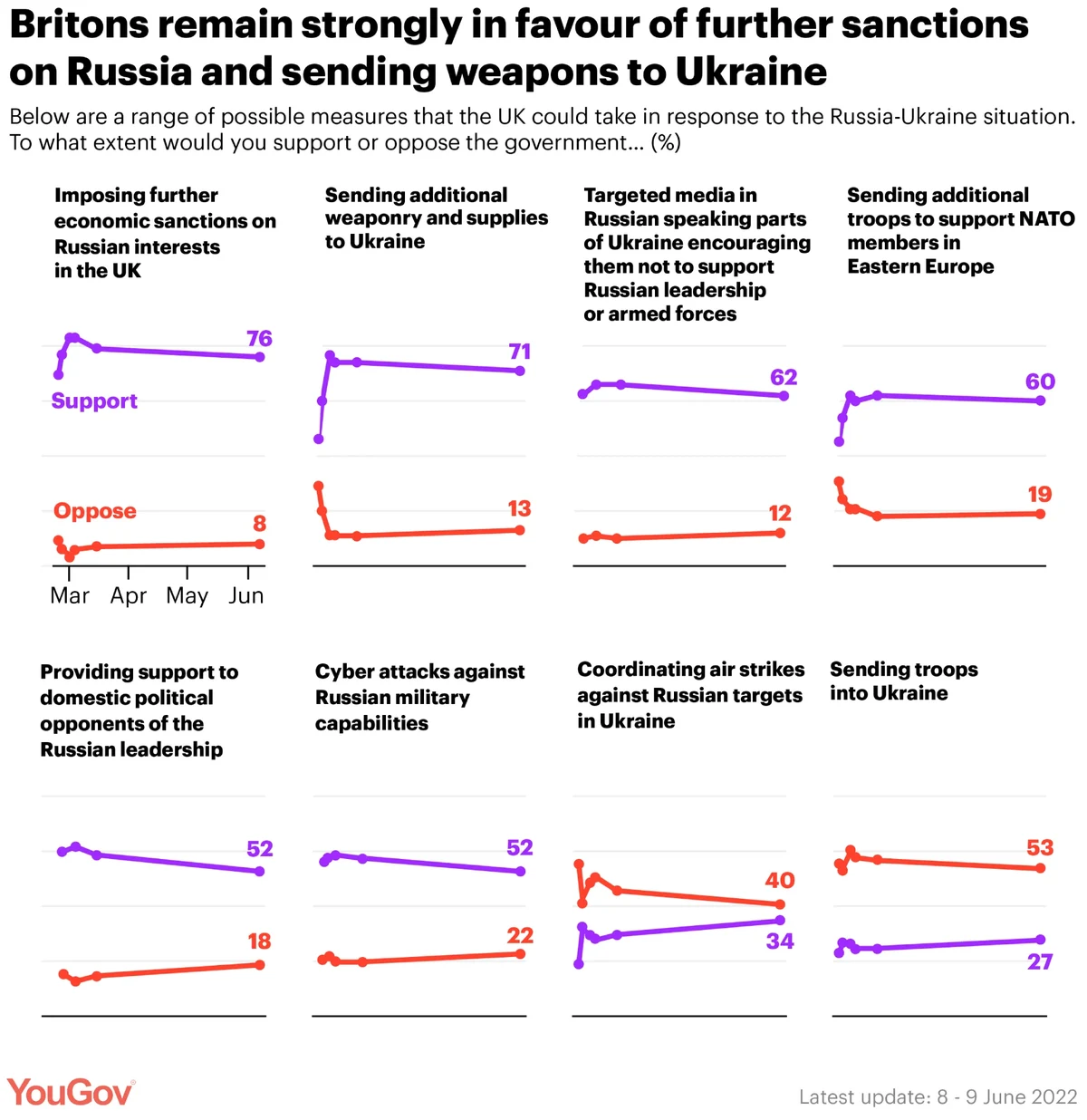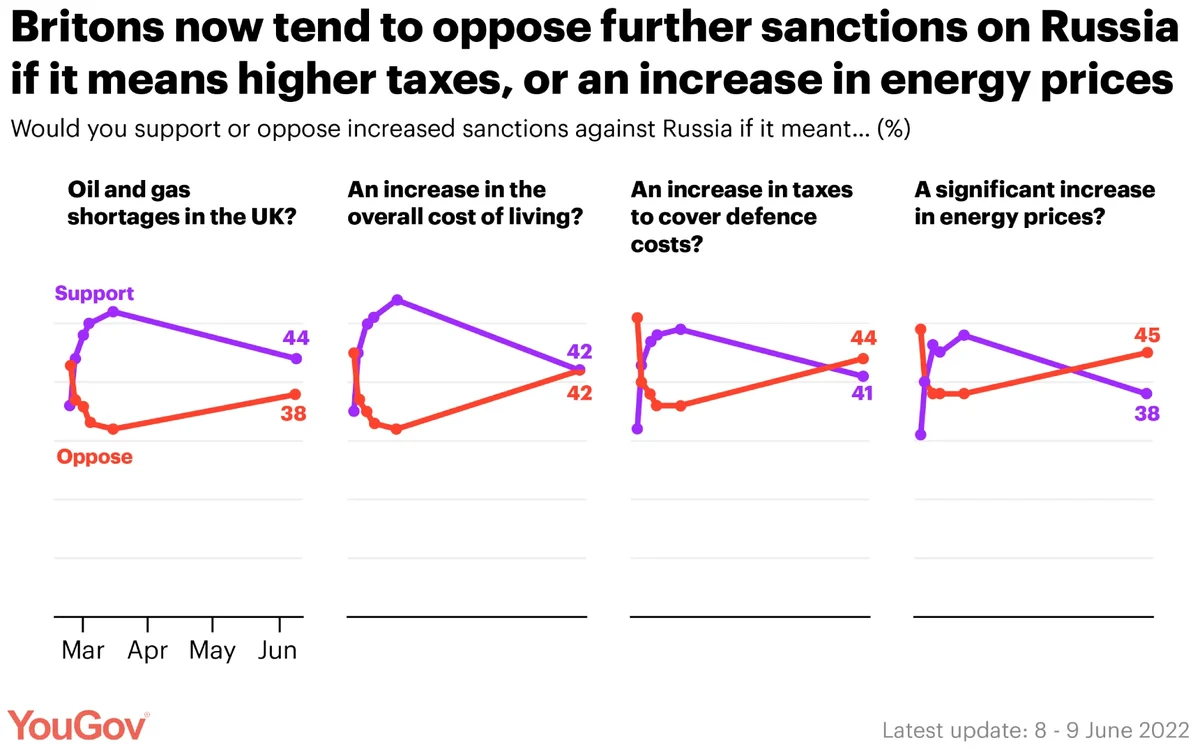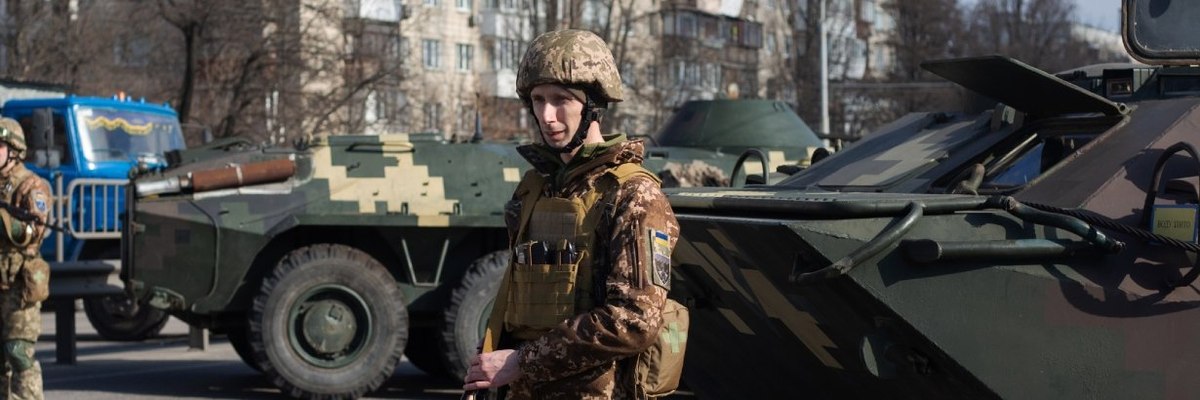Britons would now oppose increased sanctions if it led to increased energy costs
As the conflict in Ukraine drags past the 100-day mark, it seems increasingly likely that fighting will drag on in a protracted war of attrition.
Britons continue to back a wide range of supporting measures for Ukraine, bar direct military conflict between British and Russian forces. Three-quarters of people (76%) currently support increased economic penalties against Russian interests in the UK, within the margin of error for the 79% in the previous survey on 14-15 March.
A further 71% continue to be in favour of additional weapons shipments to Ukraine, with only 13% opposed to doing so. The level of support is also little changed since March (74%), despite heavy-handed threats from the Kremlin against arming the Ukrainian resistance.

Likewise, most Britons continue to support targeted media in Russian-speaking parts of Ukraine encouraging them not to support the Russian leadership or armed forces (62%) and sending additional troops to support NATO members in Eastern Europe (60%). Half would still support providing support to domestic political opponents of the Russian leadership (52%) and cyber attacks against Russian military capabilities.
Britons continue to oppose direct military action, however, with only 34% supporting air strikes on Russian targets in Ukraine and 27% backing sending troops into Ukraine.
Support for tougher sanctions wanes as the cost of living begins to bite
While most Britons are in favour of supporting Ukraine, the financial situation in the UK is growing ever more dire. Previously people were willing to shoulder increased costs to put financial pressure on the Kremlin, but now support begins to waver.
Britons still tend to say they would support further sanctions on Russia even if it led to a fuel shortage in the UK (44%), however, this is down eight points from 52% in March. The number of those opposed to increased sanctions in such a scenario has subsequently risen from 32% to 38%.
People are split 42% to 42% on whether they would support or oppose more sanctions on Russia if they would further raise the cost of living in general. Support in this scenario has fallen the furthest of those asked about, dropping 12 points since March. The number of those against has risen 10 points in the same time period.

The public is also split 44% to 41% on additional sanctions that would lead to taxes hikes to cover defence spending. Again, the proportion of support has fallen (eight points from 49% previously).
Finally, people are now more likely to say they would oppose new sanctions that would increase energy bills (45%) than support them (38%). Previously, Britons were willing to support more sanctions leading to increased energy bills by 48% to 38%.
Concern about the conflict remains high, but has also declined
Britons remain concerned about the fighting in Ukraine. Overall, some 74% are concerned about the war, including 22% who are "very" worried. However, this compares to 84% who were worried by the invasion when it began in February, with nearly double (43%) claiming to be "very" worried at the time.
Only 19% of Britons currently claim to not be worried by the situation in Ukraine.
See full results here









